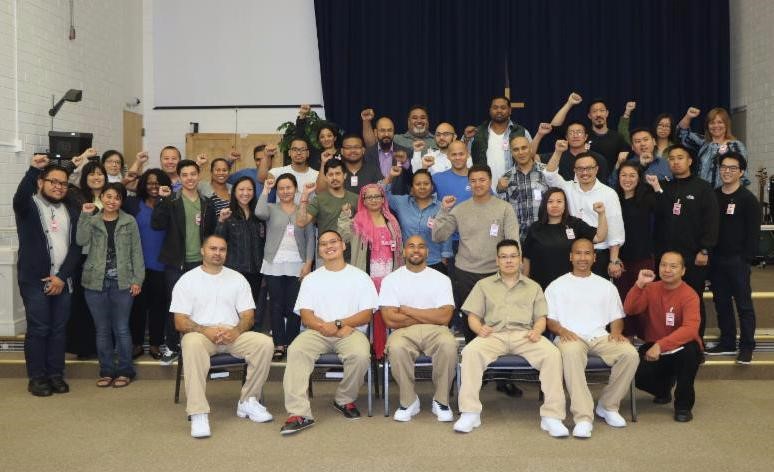The incarceration rate of AAPIs has skyrocketed since the 1990s, and certain AAPI groups are deported at disproportionately high rates because of criminal convictions. Often overlooked in the immigration and criminal justice debates, the convening highlighted the experiences and stories of AAPI immigrants and refugees whose contact with the criminal justice system makes them automatically deportable, even if they are lawful permanent residents.
During the convening, prisoners with pending ICE holds at Monroe Correctional Complex in Washington talked about their fears of being deported upon completion of their sentences. For those who are not deported right away, the lack of access to critical re-entry services and the lengthy and expensive process to get authorization to work in the US creates additional hardships. "Southeast Asian American communities are three to four times more likely to be deported for old convictions, compared to other immigrant communities," stated Naroen Chhin, co-director of 1Love Movement. "For our families, it feels like a life sentence, even after serving time." The majority of Southeast Asian Americans with deportation orders remain in the US for months or years awaiting deportation.
Participants at the convening also had the opportunity to talk over Skype with US deportees living in Cambodia. Almost 700 Cambodian American deportees are living in Cambodia, the majority of whom were refugees and lawful permanent residents in the US. Some do not speak the language and many have no family or support system in the country. Chhin continued, "Many of these individuals were convicted as juveniles and grew up incarcerated. Now, they are living a life sentence of physical isolation and family separation."
"Formerly incarcerated immigrants and refugees pay a particularly high cost in our criminal justice system due to laws that automatically funnel them into the deportation pipeline," said Quyen Dinh, executive director of the Southeast Asia Resource Action Center (SEARAC). "Many Southeast Asian Americans have transformed their lives and enriched their communities, yet are offered no path to a second chance."
AAPI youth growing up in poverty are subject to the same school-to-prison pipeline that has fueled mass incarceration for all communities of color. In California, Samoans, Cambodians, and Laotians have disproportionately high rates of arrest and incarceration. [1] These juveniles are more likely to be tried as adults compared to their white counterparts. [2] Gregory Cendana, executive director of the Asian Pacific American Labor Alliance, AFL-CIO (APALA), stated, "In order to disrupt the school-to-prison-to-deportation pipeline, we need to not only engage allies and the broader labor movement but also prioritize the stories, dignity, and humanity of all formerly and currently incarcerated individuals."
The "AAPIs Beyond Bars & Beyond Borders" convening continues the dialogue that was started last year at the "AAPIs Behind Bars: Exposing the School-to-Prison-to-Deportation Pipeline" convening at San Quentin State prison in California, which focused on education and information sharing by advocates, formerly incarcerated, and currently incarcerated AAPIs. This year's gathering in Seattle focused on creating actionable next steps driven by grassroots organizing and supported by national advocacy.
Zheng added, "If we focus on identifying our collective struggles and embracing our differences, then we can make systemic change."
The convening will conclude with a community rally entitled "Stand Together 4 Love" at the Tacoma Northwest Detention Center, where participants will join other local immigrant rights advocates to demand an end to deportation and family separation.
Sources:
1. Males, M., and Macallair, D. The color of justice. Washington, DC: Building Blocks For Youth, 2000.
2. API Youth Violence Prevention Center (2007). Under the Microscope: Asian and Pacific Islander Youth in Oakland - Needs, Issues, Solutions. Oakland: National Center for Crime & Delinquency.
Chanravy Proeung, 1Love Movement
[email protected]
401-440-6975
Marian Manapsal, Asian Pacific American Labor Alliance (APALA)
[email protected]
202-508-3733
Ben Wang, Asian Prisoner Support Committee
[email protected]
510-292-0852
Katrina Dizon Mariategue, Southeast Asia Resource Action Center (SEARAC)
[email protected]
202-601-2968



 RSS Feed
RSS Feed